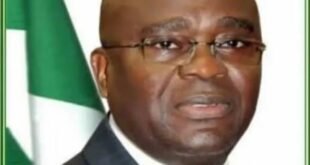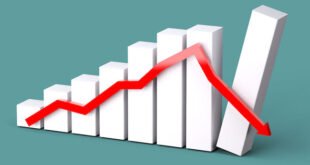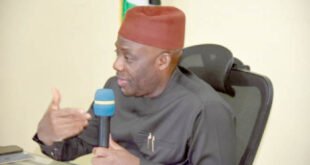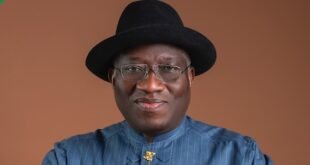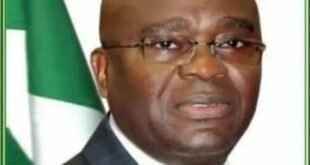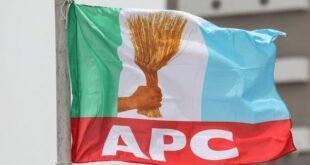Economic reform is never painless. Each nation that had to correct deep distortions faced the same choice: take hard medicine soon or delay and pay much more later. In times of public frustration, it is tempting to reach the “delicate” option (the idea of a gradual change), driven by some opposition elements in Nigeria, begins to seem reasonable. Peter Obi says: “Keep the subsidies for a while”. For Atiku Abubakar, he is “guides the currency silently from behind the curtain”. Rotimi Amaechi and Nasir El-Roma want “to push hard structural work in another year”. On the surface, it seems safer. But the story is clear on where that road leads.
When Bulgaria began its transition from communism in 1990, its leaders were afraid of the shock that rapid liberalization could cause. They freed some prices but have maintained politically sensitive subsidies, just as Peter Obi proposes. The subsidies drained the treasure, powered the inflation and collapsed by the currency. They maintained a soft pain for the Lev without reserve to defend it, exactly as Atiku Abubakar suggests for Naira. The PEG broke, the reserves vanished and the hyperinflation rose above 2000 percent. They warned against “too much at once”, echoing Rotimi Amaechi and Nasir El-Ruphai and delayed the renovation of state enterprises. Six years later, the pensions were useless, the shops were empty and the reforms they feared were forced on them in much harder form.
Nigeria today has a very different trajectory. From his first day in office, President Bola Ahmed Tinubu faced the greatest distortions. The subsidy for gasoline, which has drained over four trillion of Naira per year, has disappeared. The Naira now exchanges at a rate based on the market, filling the harmful gap between official and parallel exchange rates. The central bank returned to Orthodox monetary policy, has increased interest rates to combat inflation and has eliminated more than seven billion dollars in verified FX backward people who had become a problem of national credibility.
This authorization has restored credibility to our financial system and has pushed the International Air Transport Association to remove Nigeria from its list of countries that block air funds. This reversal is important because it reports to all the global budgets that Nigeria pays its obligations again.
These decisions have provided measurable victories in record time. The World Bank estimates that the saving of subsidies of about two trillion of Naira only in 2023, with cumulative savings that should exceed the eleven trillion of Naira by 2025. This money is already channeled into infrastructure, health care and social programs targeted throughout the country. The ranks of portfolio in the last quarter of 2024 hit 5.6 billion dollars, more than the total of the two previous years combined and a clear sign that the clarity of the rule is reporting money to local activities. The non -oil tax revenues have grown by over twenty percent on an annual basis.
Price pressure remains the most acute pain in the audience, but the first signs of relief are appearing. The official data show that the inflation of the title was loosened in June 2025 by May, the first Back -to -Thack moderation in many months. The disinflation never arrives in a straight line. What matters is the direction and credibility of politics. Both are moving in the right way.
Yet this is the stage in which the voices, mostly guided by the parish interest, will require a break. Some will say that families need to breathe space and subsidies should return to another form. Others claim that Naira is too weak and should be fixed at a stronger pace. There will be calls to slow down the tax cleaning until “the conditions improve”. The bandwagon Association of Moxed politicians and the economists who face, want us to return to Bulgaria 1990.
Atiku Abubakar’s “acceptable rate” is the same illusion that emptied the reserves of Bulgaria and broke his peg. Peter Obi’s “gradual removal” is the same gradual lie that Bulgaria has been said until the economy collapsed. The warning of Nasir El-Romai on “Too in Once” is exactly what Bulgaria leaders said before the accident. The “priority to the priorities of people in front of the economy” of Rauf Aregbesola reflects the fatal separation of the Bulgaria of the two, in which the collapse of the economy destroyed the means of subsistence they claimed to protect – as if the economy was not the line of life of the people. The call of Rotimi Amaechi to slow down is the same thought that has transformed the difficulty in collapse.
These are not alternative strategies. They are invitations to bankruptcy. These are the prescriptions of comfort-gnow and crisis that have failed every country that has tried them. And in every country where this happened, the politicians who sold them had gone disappeared when the account arrived.
The same politicians who had their turn in power and left Nigeria with a broken FX regime, hot air balloon subsidies and a dangerous ledge of the debt now want to keep lessons on the “protection of people” by reporting the distortions that were killing growth. This is not protection. This is sabotage dressed as sympathy.
A soft peg without deep reserves burns credibility while draining the poor foreign currency. Partial liberalization maintains price distortions that generate deficiencies and arbitration. Delaying the cleanliness of the state -owned companies only aggravate losses and pushes real costs in the future.
Once you withdraw from hard reforms, the investors evaporate, the deficits swell again and the cost of the loan climbs. More aspects, the more options remain when the next shock arrives. And when that bill will finally arrive, it is always bigger than it would have been sitting soon.
We have already seen this movie. In 1990 Bulgaria called her a gradual reform. In 1996, the pensions were useless, the shops and the shelves were empty and the same politicians who promised a soft landing had fled the wreck. The terrible situation in. Bulgaria forced a desperate rescue the following year in much harder condition than anything they wanted to avoid. I repeat with confidence that, in Nigeria, those who push this fantasy today will not be around to clean up the disorder tomorrow. The only question is if we have the discipline to finish the work or if we deliver the steering wheel to the people who have guided us in the moat first.
Nigeria is not Bulgaria in 1990. We will not drift towards the collapse because some family names prefer popularity on responsibility. The alternative is to retain the line and let the compounding work in our favor. Clean our books and keep the book of the predictable auction rules. Keep the savings of transparent subsidies and linked to visible projects so that citizens can see where money now go. Keep monetary policy tight until the inflation has returned to a credible band and not guess the float with administrative corrections that the markets will punish immediately.
The recent evaluation of the IMF stressed that the political direction of Nigeria restores the reimbursement capacity and stability of the anchors if it persecutes consistently. This is the silent approval that gain disciplined reformers.
Since this debate will not end there, it is worth meeting the cons -argument. Some claim that pain in families is too high and too fast. The truth is that the subsidy has never been free. It was paid through bad roads, weak schools, hospitals in the absence and heavy loans that our children would have served. Reddirized savings are the way you reconstruct those services. Others say that the float has made Naira too weak and that we should solve it with a stronger number. A number without reserve is just a promise. The promises of the markets. Bulgaria failed that test in 1990 and paid it in 1996. Nigeria should not repeat it. Another statement is that investors are not yet flooded, so the reforms do not work. Rarely floods at the beginning. They look at consistency, so they move quickly. The wave of the end of 2024 of the wallet affluent is exactly that early signal. Keep the line and long -term money follows.
But as Mr. President has always said and I am fully aware, Nigeria’s path is not uncomfortable, but it is the only one who gives us a possibility of fighting to reconstruct. The facts of change towards the upper and positive are not under discussion. It is already producing the first signs of stability and renewed interest of investors. The trajectory, if we hold it, leads to a competitive and credible naira, a fiscally stronger state that invest in power, roads and schools instead of feeding the imports of petrol and an economy in which the capital flows because the rules are predictable and the number is added. Growth will no longer be hostage to oil prices and non -oil earnings of the current year and past are proof.
The opposition has shown that it has chosen the collapse. Some former allies have joined them. The rest of us must keep the line. The story has already written the ending on the road they want. We have chosen a different ending.
There has been no painless exit for decades of distortion. The choice is as clear as it is simple. Pain now with a recovery that you can see or comfort now with a collapse that you cannot control. Bulgaria 1990 is the warning. Nigeria 2023 is the opportunity. We are already doing in months the progress that have required years for countries in similar positions. If we keep our nerve, we remain transparent and refuse the deviations that have failed elsewhere, we will not only avoid Bulgaria’s trap. We will write the modern African recovery story that others will study.
And this is the truth we have to keep. The easy road never led to the great nation. What we are doing under President Bola Ahmed Tinubu is difficult, but it is necessary. We will not be judged by how strong the complaints were in the first year, but by the strength of our economy in the fifth and subsequently. If we see him through, the Nigerians themselves who today feel that one day the puncture will remain a test that under President Bola Ahmed Tinubu, Nigeria has chosen the courage of comfort and that choice has changed the fate of our nation for good and forever. And if we have the discipline to finish this path, it will be the one in which Nigeria wins.
The last recovery of the tiger: the koko of the matter
The reforms of Bulgaria of 1990 teach us that the gradualism in the face of the structural crisis is not kindness. It is slow -sighted negligence.
The current path of Nigeria under President Tinubu is the opposite. It is difficult, urgent and far -sighted. If we hold this line, the discomfort will give way to resilience, competitiveness and prosperity.
Today the reforms of Nigeria are closer to the restoration of the 1997 Bulgaria which is the one that worked in the end, rather than its failed drift of the 90s. The difference is that Nigeria is doing it before hitting hyperinflation or a collapse of the currency.
It is the hard road, but it is the right path and leads upwards. This is the best time to bet on Nigeria.
_ Ogra is the Senior Senior Assistant of President Bola Tinubu.
Post views:
104
 JamzNG Latest News, Gist, Entertainment in Nigeria
JamzNG Latest News, Gist, Entertainment in Nigeria

